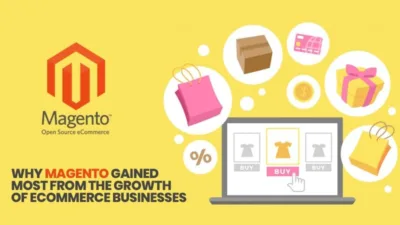Due to the severely competitive environment, most e-commerce ventures never seem to have a big enough marketing budget. As real as the cash crunch is, it is also important to think the outlay less as a marketing expense and more as an investment in the brand that will continue to pay for itself for an extended time. While crafting the marketing budget for your e-commerce venture is undoubtedly important, it is even more important to plan effectively to achieve a high ROI with comprehensive knowledge of your market standing and your principal target audience. Some smart methods of making your marketing budget work harder:
Formulate a Marketing Strategy That Is Planned Well
Before jumping in at the deep end, it is better to find out exactly what your position in the market is and how you can reach your target audience the most easily. For example, if the product you are selling is unique, it will be necessary to educate and inform your target audience how they can benefit from it. However, if you are in a market that is already intensely competitive, you will need to devote your energies to finding a unique differentiation that you can drive home to your audience. To come to grips with target demographics, you will need to not only conduct in-depth audience surveys but also use one of the sophisticated CRM software packages that can give you an idea regarding who is visiting your site and making the purchases. Using the data garnered from this exploration, you will be in a better position to commence marketing to your target audience more effectively.
Consider the Staff Resources Required and Plan Accordingly
Once you have been able to decide on a strategy and arrived at an overall budget required for executing it, you will need to break down the budget into its component categories so that it is easier for you to put your plans into action. One of the most important decisions that you will need to make is to whether you are ready to bear the expenses of having the entire marketing team in-house or you will have a mix of in-house staff and outsourced assistance. While having a full marketing team in-house is undoubtedly attractive as you can then be more nimble and have everything under your control, it is also true that you will have to deal with the issue of recruitment, training, and compensating them for long-term benefits that have a lot of cost implications. It may be more worthwhile for you to opt instead for a strategy wherein you have a few personnel in-house who will be responsible for the overall guidance and organization of the marketing strategy while the rest of the actual marketing tasks can be outsourced to specialist agencies or even low-cost freelancers.
Choose a Robust E-Commerce Platform with Marketing Support Tools
The choice of the hosting partner is perhaps one of the most critical decisions for an e-commerce venture. Not only should the platform be scalable so that you do not have to jump out and choose a new platform as you grow bigger but also offer in-built marketing tools that can save you a lot of money over time. While choosing an e-commerce platform, make sure that it is SEO-friendly so that your site ranks better in the search engine pages says the marketing head of NationaldebtRelief.com, a leading private online lender. The site should also be able to offer you a single dashboard from which, you can oversee your platform’s performance, including the management of your social media accounts. In the modern marketing environment, both SEO and social media have become vital in the growth of e-commerce because typically users tend to start their online searches with a query on Google or while interacting on their social media accounts like Facebook and Instagram.
Create Content That Engages and Delivers Value
The contemporary customer is extremely wary of advertising or any content that seems to be advertising in poor disguise. To get around this defense mechanism of customers, you need to be able to create content that the customer will appreciate. Typically, content that customers like to spend their time on entertain or add value by giving them information on subjects they want. When the content is robust enough to stand on its own as a value-added communication, subtle brand messaging can always be infused naturally into the content for customers to discover an explore. When the communication is genuine about its intent to inform and add value to customers, it succeeds more in its overall objective of carrying forward the brand message. According to expert marketers, e-commerce companies that use strategic content marketing witness conversion rates that are many times that of those who do not engage customers.
Institute a Loyalty Program to Reward Faithful Customers
As every marketer knows, the cost of acquiring a new customer is several times more than the cost of retaining an existing one. According to Forbes, acquiring new customers can be five times more expensive than what it takes to retain existing ones. It, therefore, makes eminent sense for companies to try to focus on keeping existing customers happy. A relatively simple and inexpensive method of building customer loyalty is through a loyalty program that rewards every purchase with loyalty points that can be redeemed against new purchases. According to studies, well-implemented loyalty programs can increase revenues; increase customer spends, as well as the frequency of purchases. The loyalty program also yields valuable data regarding customer preferences and buying behavior that can be used to tweak promotion planning, pricing, and inventory management. It also makes it possible for the company to cross-sell products more easily to customers and boost demand in slow seasons.
Conclusion
For any business to survive in a competitive environment, it has to engage in a viable marketing strategy. It is natural that the budget never really can stretch to the extent that the marketing department of an e-commerce venture would like it to, however by engaging in some of the tactics discussed; it is possible to make the budget stretch a lot further and achieve more.






Email marketing is the process of sending promotional emails, newsletters, or other material through email to a group of individuals. It can be a powerful marketing tool with a high ROI, but best practises and ethical standards must be followed to ensure successful and well-received emails.